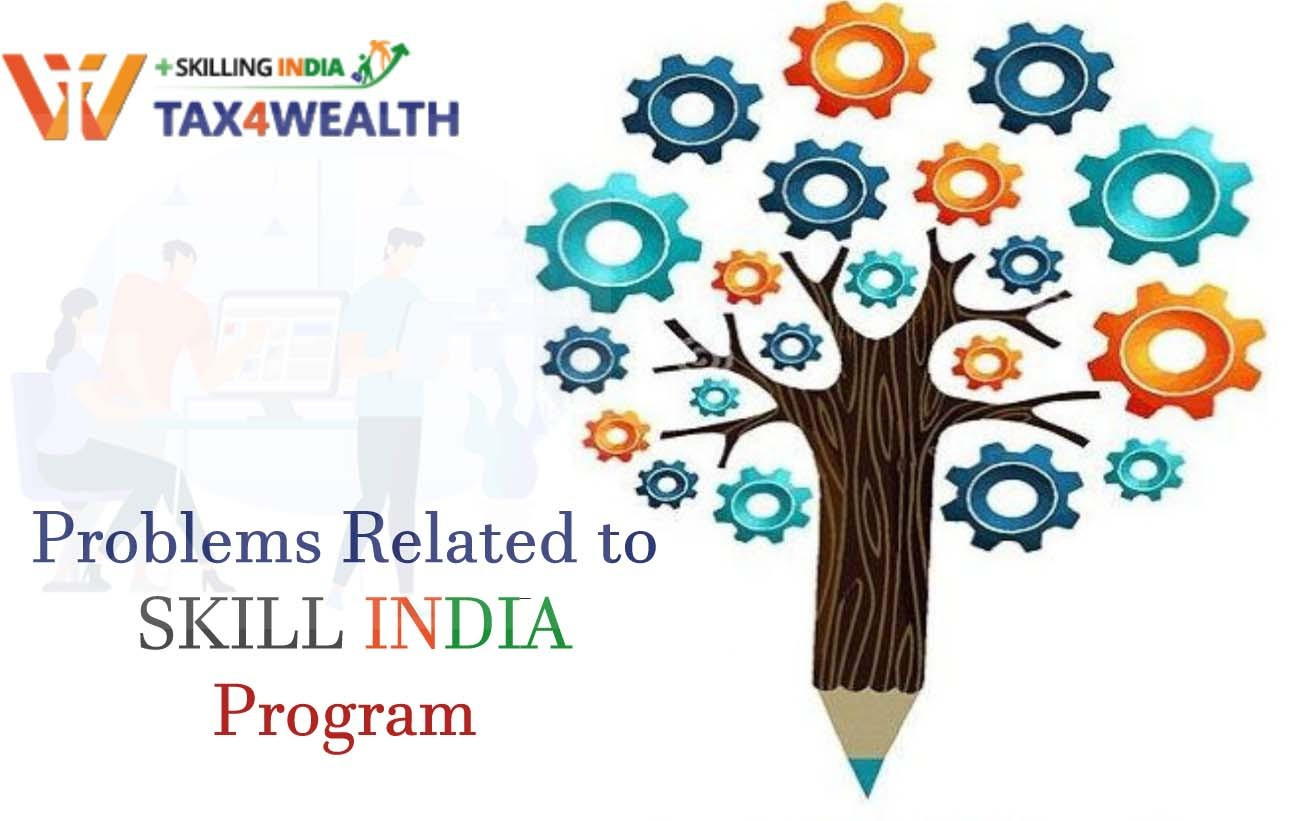
The Problems Related to Skill India Program & Its Solutions
1. What is the Skilling India Program?
Skilling India is a national initiative launched by the Government of India in 2015 to upskill and reskill the country's workforce to meet the needs of the industry. The program aimed to train over 40 crore youth in different industry-relevant skills by 2022. The program is implemented by the Ministry of Skill Development and Entrepreneurship (MSDE) through a number of schemes and initiatives.
2. What role the ministry plays in implementing Skilling India Program?
India is on the path to becoming the Skill Capital of the world. With a youthful demographic advantage, India has the potential to leverage its workforce effectively by equipping them with 'employable' skills that make them industry-ready. To harness this potential for positive development, the MSDE has fostered collaborations with various stakeholders, including Central Government Ministries, State Governments, Industry, Non-Profits, and Academia, to streamline and accelerate skilling efforts across regions. These collective endeavours have yielded substantial growth in skill training outcomes.
This year marks the eighth successful year of MSDE's journey since its establishment in 2014. Initially founded as the Department of Skill Development under the Ministry of Sports & Youth Affairs on July 31, 2014, it later transformed into the Ministry of Skill Development & Entrepreneurship in November 2014 (9.11.2014). Annually, the Skilling India program, a mission aimed at empowering youth with skills for enhanced livelihoods, has witnessed over one crore young individuals enrolling and benefiting.
While skill development is crucial, it must be complemented by employment generation. Therefore, the government must focus on labour-intensive industries rather than solely emphasizing capital-intensive or technology-driven sectors to generate sufficient employment opportunities.
Supporting the growth and development of the SME sector can play a pivotal role in creating the additional employment opportunities necessary to absorb and engage the entire workforce.
3. Challenges in India's Skilling and Entrepreneurship Landscape:
Skills and knowledge serve as the driving forces behind a nation's economic growth and social development. Countries equipped with higher skill levels and superior standards are better poised to navigate the complexities of both domestic and international job markets. According to the NSSO's 2011-12 (68th round) report on Education and Vocational Training in India, 2.2% of individuals aged 15-59 reported having received formal vocational training, while 8.6% received non-formal vocational training. Although there is an ongoing debate about the exact extent of this challenge, its formidable nature is indisputable.
However, addressing these issues, Tax4Wealth is committed to providing innovative solutions that empower individuals with the skills and knowledge needed to thrive in India's evolving job market. Through our initiatives, we aim to bridge the gap between education and industry requirements, support aspiring entrepreneurs, and create a conducive environment for skill development and entrepreneurship in India.
The skilling and entrepreneurship landscape in India presents several distinct challenges, some of which are outlined below with the solutions:
✅ Public Perception and Formal Education Disconnect:
Public perception often relegates skill development as a last resort for those who haven't excelled in traditional academic paths.
Whereas, we believe that skills are the cornerstone of success in any field. Our academy's core principle is to empower individuals with practical skills that not only complement formal education but also provide an avenue for sustainable and fulfilling careers. By offering engaging and industry-relevant courses, we redefine the narrative surrounding skill development.
✅ Lack of Coordination in Skill Development Programs:
Skill development initiatives are fragmented across various government departments, lacking a coordinated approach.
Meanwhile, our integrated approach to education ensures that our courses are designed with input from industry experts. We bridge the gap between theoretical knowledge and practical application, collaborating with professionals from diverse sectors. This synergy ensures that our learners are equipped with skills that meet industry demands.
✅ Inconsistent Assessment and Certification Systems:
Multiple assessment and certification systems lead to confusion among employers and learners.
We uphold a standardized evaluation process that aligns with industry standards. By providing industry-recognized certifications, we empower our learners with credentials that employers trust, facilitating smoother transitions into the workforce.
✅ Shortage of Skilled Trainers:
The lack of skilled trainers hampers the quality of education and training.
Tax4wealth comprises experienced practitioners who bring years of expertise from various industries. This ensures that learners receive practical insights and real-world knowledge, enhancing the quality of education and mentorship they receive.
✅ Mismatch Between Demand and Supply:
Skill gaps persist due to discrepancies in supply and demand at both sectoral and spatial levels.
We meticulously analyze industry trends to offer courses that align with emerging demands. Our dynamic curriculum adapts to evolving market needs, ensuring that our learners are well-prepared for the professional landscape.
Conclusion:
In a country facing a multitude of challenges within the skilling and entrepreneurship landscape, Tax4Wealth steps forward with comprehensive solutions that not only address these issues but also pave the way for a dynamic and skilled workforce ready to embrace entrepreneurship. Let's delve into how we parallel the Ministry's concerns with our transformative ideals.
Related News
No comments yet, Be the first to comment.













